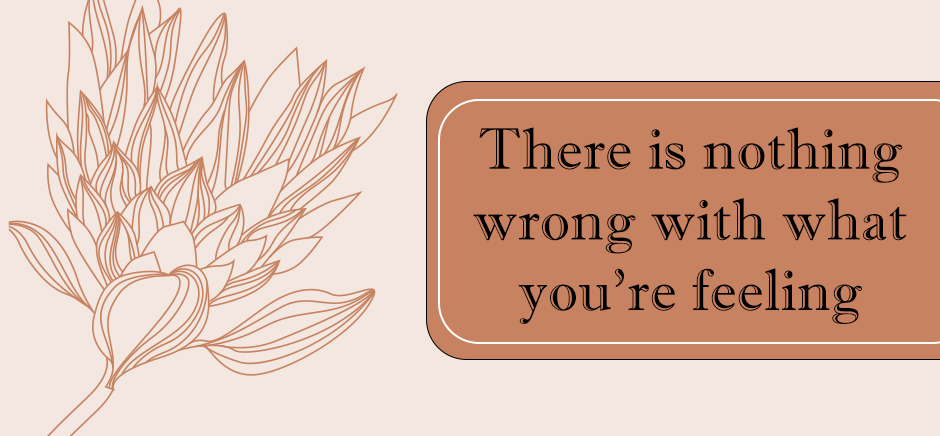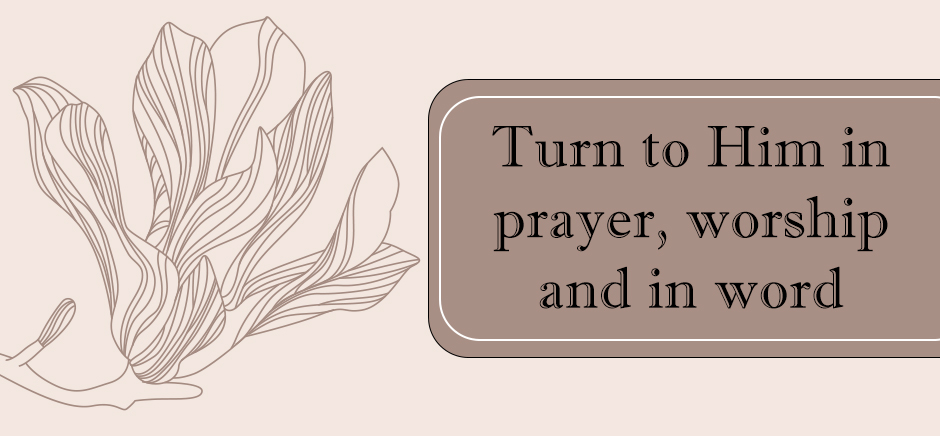I never thought that I would have depression. It seemed like something only strangers had. Even when a close friend of mine struggled with depression a few years ago, I couldn’t relate to what she was going through. I just thought of it as a really low period some people had and would eventually get out of, if only they tried hard enough.
Depression was a faraway concept, and “depressed” was a word I used casually when I felt particularly sad. I didn’t understand depression—until it happened to me.
For me, depression was—and is—a heavy cloud hovering above my head, a coldness creeping in my heart, a veil darkening my sight. It’s days of moving slowly and numbly, nights of overflowing tears and thoughts. It’s lashing out against my family while pretending to act like a normal functioning human being in school, in church, and outside. It’s sobbing uncontrollably one moment and feeling nothing at all at another. It’s thinking to myself that I’m getting better one day, and completely breaking down the next.
It’s been three months since I found out what I was going through had a name. I have depression, and this is what I want you to know.

There’s so much stigma surrounding mental disorders that when I first started feeling this way, I felt confused and guilty. Weren’t Christians supposed to be happy all the time? If I had depression, did that mean I was doing something wrong? Was having depression some sort of sin?
An article I came across in Christianity Today said: “While spiritual problems—like habitual or unconfessed sin, lack of faith, or, in rare cases, demonic attack—certainly can trigger depression, those things are often the result of depression, not the cause.”
Don’t beat yourself up for having depression, because it is not your fault. What you’re going through is a mental illness that could stem from a myriad of potential causes, such as genetic vulnerability, significant life events, personal problems, or illnesses. Just as you wouldn’t blame spiritual problems for a fever or a broken leg, you shouldn’t automatically assume the same for depression or any other mental illness.
In my case, my depression was triggered by a particular experience I had undergone.
However, if you do think that your depression may have spiritual causes, talk to your pastor or Christian counselor.

There were many nights when I felt utterly alone and wretched. There were many occasions when the sadness felt too heavy for my shoulders to bear, and fleeting thoughts of death would cross my mind. I felt like I was wasting away, like my life had been drained of all color and that there was nothing else for me to cling onto.
A few weeks ago, the preacher at my church wrapped up his sermon with one sentence which has stuck in my head since, and which has given me much comfort: God is with us and is for us.
Even though you may feel that everything is meaningless right now, remember that God is, has been, and always will be sovereign, omniscient, powerful, gracious, merciful, loving, kind, and good.
Depression cannot separate you from the love of God, even if you feel numb to it (Romans 8:38-39). Though the nights are long and filled with mourning, remember that joy comes with the morning (Psalm 30:5). He is the Father of mercies and God of all comfort, who comforts us in all our affliction (2 Corinthians 1:3).
God wants to help you. He is on your side in this battle. He sustains and strengthens you. All you need to do is to call upon His name and cling onto Him.
And one way of remembering these precious truths of God is by reminding yourself of them daily—and even more so as you battle with thoughts and feelings of depression.

It can be difficult to turn to God, especially when the weight of depression weighs so heavily upon you that opening the Bible or even uttering a prayer feels like a chore. I know, because I’ve felt that way—and sometimes still do.
My mistake was to turn to other lesser means of comforting myself, which would only numb me temporarily without actually filling the aching hole in my heart.
Yet God does wonders with us when we choose to turn to Him. His Word has comforted me greatly in this season—especially the Psalms, which I used to find boring. But now, in the midst of my tears, I can finally empathize with the psalmists who wrote them when they were in great anguish and even on the brink of death. There are many psalms which tell of the psalmists’ suffering and hurt, of turning their eyes to God, of remembering His faithfulness and steadfast love, and of being delivered by his mighty Hand (Psalm 23, 30, 31, 62, 143).
I wrote down verses which God used to speak peace into my heart that surpassed all understanding, and would take them out and read them aloud to myself when I felt the shadows of depression looming. I also listened to worship songs which centered on Christ’s character as my cornerstone. I’m especially thankful for American Christian musician Steffany Gretzinger’s album, The Undoing, which spoke to me in many ways.
It can take effort to look outwards and upwards at God. But it is only Him alone who can give us the peace and comfort that we so desperately seek and need.

At first I couldn’t articulate what exactly I was feeling or going through. All I knew was that I was inexplicably crying, almost mourning, over a deep sadness that wasn’t going away. I have always been close to my family, especially my parents, but I found that I couldn’t and didn’t know how to tell them what was happening to me.
I reached out and told my close friends, a mentor from church and my aunt, many of whom prayed along with me. There were times when I was taking things badly and God used these sisters to share with me Bible verses, a song or words of encouragement which I really needed to hear at that time.
Finally, I began to see a Christian counselor. Over the past two months, she’s been helping me to work through issues which may have triggered my depression.
It’s important to reach out to trusted friends and relatives who can support you in your time of need. If necessary, you may also want to consider seeing a Christian counselor or a doctor if your depression persists. I know how scary it can be to tell your loved ones, and to take that step to speak to a professional, but I’m so grateful that I did. Because without their support, I know that I would still be in a very bad place.
Since then, in God’s goodness and faithfulness, He has been lifting the fog of my depression, little by little. In this difficult and dark season, He has been my light, my strength and my song. He’s placed people in my life who have shown me the love of Christ through their encouragement, support and prayers. Most importantly, in the process He’s been giving me a sweeter and deeper appreciation of who He is, and gently promising me that “in all things God works for the good of those who love him, who have been called according to his purpose” (Romans 8:28).
For that, I give Him thanks.
I want you to know that you are not and never will be alone. You are loved as a child of God, who has been, is, and always will be with you and for you. Rest and be still in His love, dear brother and sister.
Where can I go from your Spirit? Where can I flee from your presence? If I go up to the heavens, you are there; if I make my bed in the depths, you are there. If I rise on the wings of the dawn, if I settle on the far side of the sea, even there your hand will guide me, your right hand will hold me fast. If I say, “Surely the darkness will hide meand the light become night around me,” even the darkness will not be dark to you; the night will shine like the day, for darkness is as light to you.
— Psalm 139:7-12

